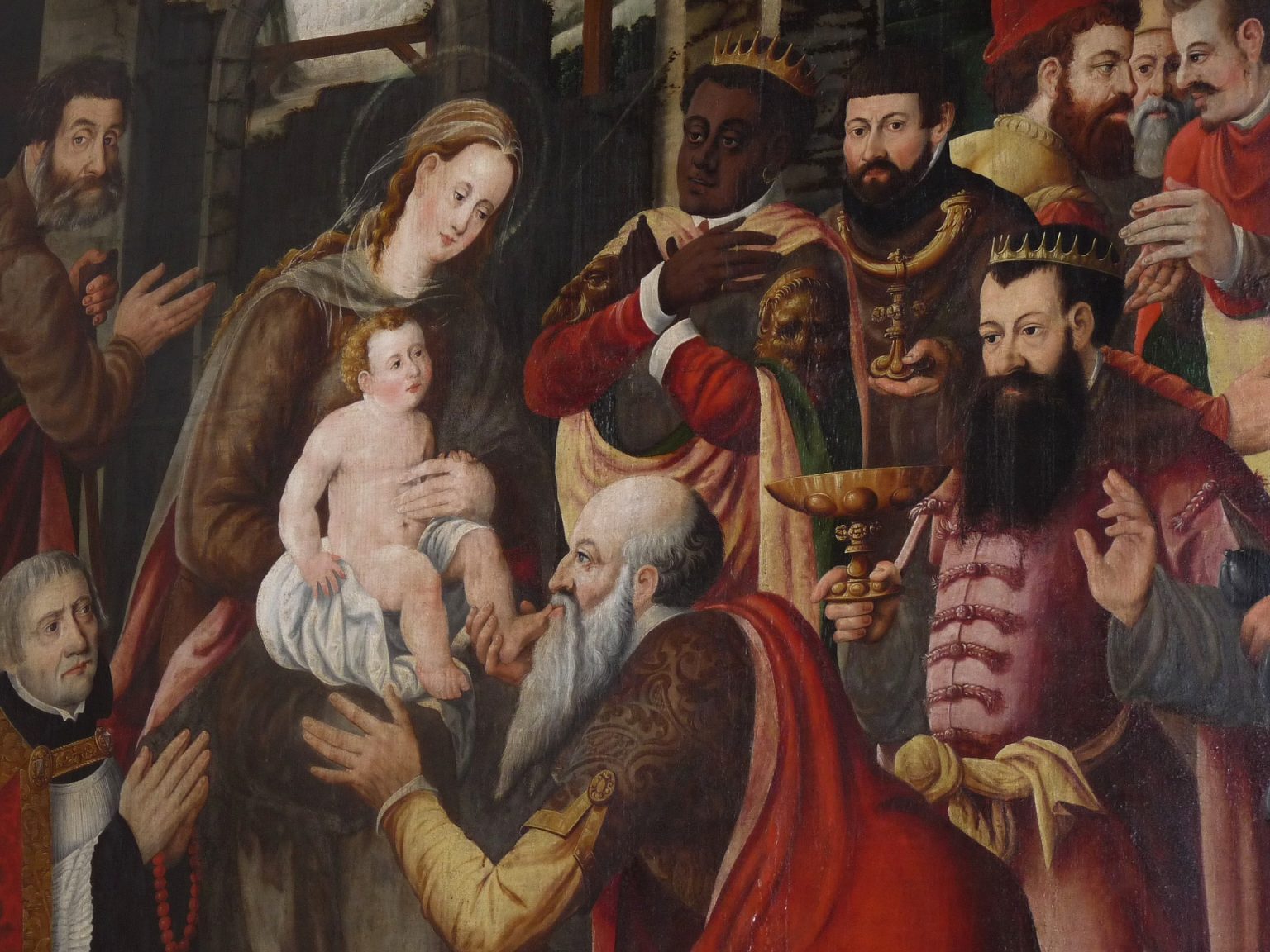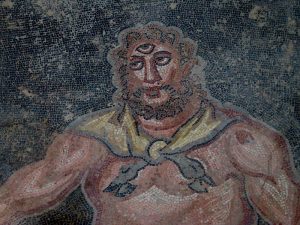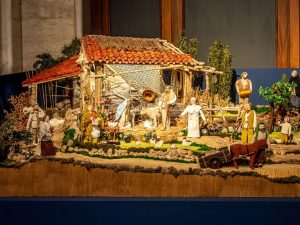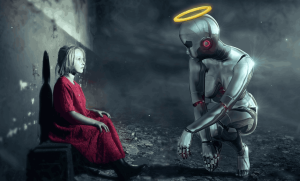The bivalent influence of Christianity
7 min read
It is widely believed that Christianity has exerted an essentially inauspicious influence around the evolution of civilization, fostering a systematic obscurantism and being itself the author of the most varied atrocities. The purpose which has inspired this article is to provide food for thought that would lead to a partial reshaping of this idea.
When you think of Christianity, what immediately springs to mind is a series of doubtless gloomy pages of our history, such as political interference and the pomp of the ecclesiastical hierarchies, the refractoriness to scientific innovations and women emancipation, the Galileo process, the witch hunt, the index of forbidden books, Holy Inquisition tortures, the Crusades, the Investiture Struggle, and so on. Also, those events, due to a ferocious anti-Catholic propaganda that already started during the Enlightenment and not intellectually honest, helped to spread the theory that religion should be fully demonised for the good of humanity. But is it really true that, in the absence of religion, we would be nowadays light years ahead with social and scientific progress?
Leaving aside the validity of this thesis, it can be noticed first that this is a logically deceptive reasoning, since history is a dynamic flow of events, which the outcome is not their banal linear superposition, and so it is not predictable, if not by their complex interaction. In other words, arguing that if there had never been religion, today we would all live better it is kind of like saying that if we had four legs, we would run faster, which may be true, but it is remains evidently absurd. Let’s think of the fact that a substantial part of our artistic heritage, interpreted in the totality of its declinations, was inspired by the idea of materialised transcendence in a certain human institution. Therefore, if it was not an obtuse way of thinking, it could conclude that, if recent discoveries had happened a thousand years ago, we would probably have Sfera Ebbasta, but not Dante Alighieri in any case.
Anyway, what should make us think about more than any other topic is the far from marginal contribution that Christian doctrine made in the most disparate fields for the development of Western society. With the Roman Empire on the brink of the abyss, the protection and the diffusion of classical and pagan heritages were taken in with extraordinary zeal by monks who animated the Christian abbeys, the main centres, when not the only at the time, of cultural and spiritual ferment. The Vivarium of Cassiodoro near Squillace (Calabria), the Abbey of Montecassino of San Benedetto (Lazio) and the Abbey of Bobbio of San Colombano (Emilia-Romagna) are well-known for their notoriety and significance.
Similarly, it is not found a systematic closed attitude towards other socio-political and religious realities. Rather, it is to be attributed to the flourishing medieval geographic literature (History of the Langobards by Paolo Diacono, History of the Mongols by Giovanni da Pian del Carpine, Ecclesiastical History of the English People by Bede the Venerable etc.) the merit of having put us in contact for the first time with the uses and customes of people from all over the then known world. In some cases, the Christian writing was even able to avoid the oblivion of traditions that were transmitted only orally (for example, Norse mythology with the Edda).
During the so-called Carolingian revival (742-814), an expression which identifies a phase of profound cultural flowering during the power of Charlemagne, characterized by a modern reformulation of classical antiquity and a markedly religious imprint, we witness the elaboration of an education system not too dissimilar to how we conceive it today. The experience of the Palatine Academy of the pedagogue Alcuin of York, in fact, can be considered pioneering of modern universities.
Furthermore, contrary to what is commonly held by detractors, Christian doctrine historically has never had a conflictual relationship with logic, philosophy and the sciences. After the well-known Aristotle, the further evolutions of the tools of logic before the advent of the modern era took place within the Scholasticism (medieval Christian philosophy), with the personalities, among others, of Anselmo d’Aosta, Pietro Abelardo, Albert the Great, Thomas Aquinas, Bonaventure of Bagnoregio, Duns Scotus, William of Ockham. Incidentally, with regard to the latter, it should at least make people smile like his “razor”, the methodological principle that prescribes to always opt for the simplest hypothesis in dealing with a question, is not infrequently cited today to summarily discredit all thinkers who are in favor of the existence of a divinity. The contribution of these philosophers, whether their religious persuasions were founded or not, is unavoidable in order to understand how the scientific achievements of modernity have been reached, since there is no solution of continuity in progress.
Albert the Great (13th century), consecrated with the epithet of “Doctor Universalis” by virtue of a versatile erudition unparalleled in the Middle Ages, allowed the West to penetrate deeply into Aristotle’s texts and natural sciences. It is strange how he, although unfailingly devoted, is known for statements that are far from being unscientific: “The goal of the natural sciences is not simply to accept the statements of others, but to investigate the causes that are at work in nature” (De Mineralibus Libro II, tr. I, i). In his treatise on plants he affirmed the principle: Experimentum solum certificat in talibus (The experiment is the only sure guide in such investigations). (De Vegetalibus, VI, tr. Ii, i). “In studying nature, we do not have to investigate how God the Creator can use his creatures to perform miracles and thus manifest his power: we rather have to investigate how Nature with its immanent causes can exist” (De Coelo et Mundo, I, tr. iv, x).
It was written by a Pope, John XXI, “Pietro Spano, who down the light in twelve pamphlets” mentioned by Dante in Paradiso, XII, 135, the most complete and sophisticated logic manual supplied by all the major “European” universities for over four centuries. Remaining on the subject of Dante’s characters, the Spanish theologian and archbishop Isidoro of Seville was designated in 2002 as the patron of the Internet as the author of the first ever written encyclopedia. But the discussion does not end here, as it can be extended to all branches of human knowledge.
The number of non-secular personalities who have distinguished themselves in mathematics, physics and astronomy, and from whose intuitions the most famous and celebrated scientists such as Galilei and Newton have taken off, is almost boundless. Well before Copernicus and Kepler, by way of example, the cardinal and theologian Nicola Cusano formulated a heliocentric astronomical theory (whose rudiments, to be honest, are already traceable in some strands of Pythagorean and Neoplatonic traditions) and overshadows the modern notion of limit of a function when, in his De docta ignorantia, he argues that the relationship between human intellect and truth is the same as that between a polygon whose sides tend to an infinite number and a perfect circle. Friar Bonaventura Cavalieri also contributed massively to lay the foundations of modern integral calculus, with the formulation of the indivisibles method for calculating the volumes of solids. Guido monaco, a 10th century Christian monk consecrated to history with the name of Guido d’Arezzo, is considered the creator of modern musical notation and one of the most brilliant and influential pedagogues in the discipline.
Giovanni Buridano (together with his mentor Roberto Grossatesta and in the wake of the intuitions of the Byzantine theologian of the 5th-6th century Giovanni Filopono), three centuries before Newton, formulates the theory of the impetus whose enunciation is almost identical to the second principle of inertia of the classical mechanics and predicts the experiments of Stevino and Galilei regarding the acceleration of gravity, realizing that objects of different weight, if dropped from a given height, will reach the ground at the same instant. The French bishop Nicola d’Oresme arrives at a first formulation of the equation of a straight line (inaugurating the season of analytic geometry, commonly associated with Descartes), of the theory of probability and of the notion of incommensurability (to him we owe the demonstration of divergence of the harmonic series), also excelling in economics, psychology and musicology.
On the artistic and humanistic side, the cases that can be drawn by suffrage are even more numerous, and here it is not considered necessary to mention, for their notoriety, pillars of world literature, painting and sculpture such as Dante, Boccaccio, Cimabue, Giotto, Raphael, Michelangelo… whose inspiration cannot fail to be traced back to their inexhaustible religiosity.
For a more exhaustive and authoritative discussion, see, among others, the recent works by the American sociologist and academic Rodney Stark (Bearing False Witness: Debunking Centuries of Anti-Catholic History; For the Glory of God: How Monotheism Led to Reformations, Science , Witch-Hunts, and the End of Slavery; The Victory of Reason: How Christianity Led to Freedom, Capitalism, and Western Success; https://it.wikipedia.org/wiki/Rodney_Stark), to the “Genius of Christianity” of French viscount de Chateaubriand and the renowned essay by the Italian philosopher Benedetto Croce (Why we cannot not call ourselves Christians).
If you are interested in history and society, you can take a look at our other articles on https://www.antropia.it/societa-e-storia/.

Sono Chiara e mi sto laureando in Lingue e Letterature Straniere presso l’Università degli studi di Firenze. Ho conseguito la laurea triennale con un doppio titolo italiano e tedesco dopo aver trascorso un anno di studi all’estero presso l’Università di Bonn. Grazie a queste esperienze non ho avuto solamente l’occasione di viaggiare e scoprire nuovi angoli di mondo, ma anche e soprattutto di approfondire ed ampliare il mio amore per l’arte in ogni sua espressione, essendo rimasta affascinata da una città unica come Firenze e dalle nuove correnti più recenti in Europa. Sono inoltre una grande appassionata di cinema, musica e letteratura, discipline che hanno in comune un profondo senso creativo. Credo infatti nel grande potere della creatività, che come diceva Einstein può essere «contagiosa»







